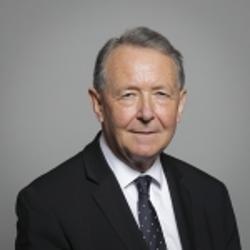Nigeria: Overseas Aid
(asked on 25th March 2020) - View SourceQuestion to the Department for International Development:
To ask Her Majesty's Government how they have distributed funding from the £300 million North East Nigeria Transition to Development Programme since April 2017; how they intend to distribute funding from now until that programme’s end in 2022; who (1) have been, and (2) will be, the beneficiaries of that funding; how qualifying communities are chosen; and how they intend to evaluate (a) the use, and (b) the results, of that funding.
The UK has provided lifesaving assistance through the North East Nigeria Transition to Development (NENTAD) Programme over the last three years to support the UN-led Humanitarian Response Plan. Funding has been distributed to UN agencies, two INGO-led consortia and the Red Cross Movement to provide urgent aid to save lives and minimise suffering. To date the UK’s funding distribution has included £125 million for lifesaving food; more than £60 million for nutritious foods and treatment; more than £16 million for informal and emergency education; nearly £19 million to support humanitarian coordination in the North East; more than £17 million for protection support and services and £6 million for access to lifesaving water, sanitation and hygiene. Funding is intended to be distributed until the programme’s end through a range of UN, INGO and Red Cross partners to meet the most critical lifesaving needs. In light of the emerging needs due to Covid-19, partners will be asked to ensure their activities address the risks and urgent impacts of Covid-19 in North East Nigeria.
Previous beneficiaries of the NENTAD programme were identified as being in acute need of lifesaving assistance by the humanitarian community. In 2018/19 NENTAD programme results included reaching 1.6 million people with lifesaving food assistance, providing access to education for 130,000 out-of-school children, the prevention of malnutrition amongst 260,000 children and providing 48,000 people with clean water. The future beneficiaries of the NENTAD programme will continue to be the most vulnerable conflict-affected people in North East Nigeria, including Internally Displaced Persons (IDPs), refugees and affected host communities.
Qualifying communities are selected by humanitarian partners following needs assessments to identify who is most in need of lifesaving support, so that resources can be efficiently prioritised for the most vulnerable. DFID evaluates the use and results of funding through quarterly reviews with implementing partners; field visits to the North East; internal audits and through the DFID Annual Review. The last Annual Review of the NENTAD programme was scored an A. A planned Mid-Term Review of NENTAD has been paused due to Covid-19.

